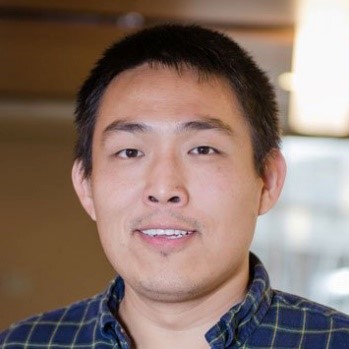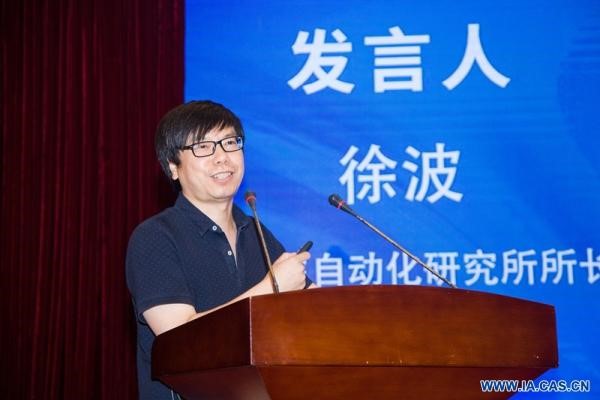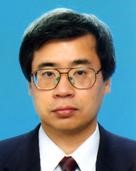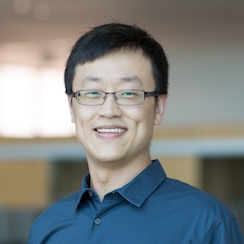
Prof. Qin Ma
The Ohio State University, USA
Department of Biomedical Informatics
Title: Graph representation learning of single-cell omics data
Abstract:
Artificial intelligence (AI) and single-cell studies have been making waves in the science and technology communities. AI offers a broad range of methods that can be used to investigate diverse data- and hypothesis-driven questions in single-cell biology (Ma, Q., Xu, D. Deep learning shapes single-cell data analysis. Nat Rev Mol Cell Biol, 2022). The highly heterogeneous nature of single-cell data can be analyzed across a wide range of research topics by generalizing deep-learning model design and optimization in a hypothesis-free manner. This talk will introduce in-house graph representation learning methods for single-cell omics data to discover underlying mechanisms in diverse biological systems.
Biography:
With a Ph.D. degree in computational science and 12 years’ research experience in bioinformatics, I view myself as a well-trained bioinformatics researcher and computational modeler of biological systems. Through independent investigation and collaborative studies with numerous biologists, I have developed a strong and long-term interest in (1) understanding of how functional machinery encoded in a genome/metagenome; (2) elucidation of the metabolic systems and their regulatory mechanisms in a cell; and (3) development of enabling computational techniques in support of the above scientific studies. One of my current research projects aims to examine the construction of cell type-specific gene co-regulation signatures based on single cell transcriptomics data in order to develop a computational model that tracks how genes are expressed in specific cell types and help scientists unravel how diseases progress and evade treatment.

Prof. Bo Xu
Chinese Academy of Sciences, China
Institute of Automation
Title: On The Big Model TaiChu and its Application in Medical Artificial Intelligence
Abstract:
TaiChu is a multi-modal foundation model developed by CASIA (Institute of Automation,Chinese Academy of Sciences), and its update version could complete the understanding and generation for image,speech,text,video,3D and signal information. Medical is a super scenarios for application of artificial intelligence and multi-modal big model could play very important role. The talk will introduce the recent progress of the Taichu2.0 and the preliminary trial in medical AI application. Also the talk will discuss the specific technology challenge in the area.
Biography:
Prof. BO XU, is the professor and president of Institute of Automation ,Chinese Academy Science He is also the consultative committe member of national strategy for new generation artificial intelligence development. He works on speech recognition and artificial intelligence for many years and published aroud 300 papers in area. Recent years he focus on auditory model and brain-inspired computation, multimodal big model and decision intelligence. He takes great efforts pushing forward TaiChu in deep collaboration with doctors and hospitals.

Prof. Jing He
University of Oxford, UK
Department of Neuroscience
Title: GPT-AI based Target Discovery and Drug Design: Recent Advances and Future Perspectives
Abstract:
GPT-AI has inspired computer-aided drug discovery. The widespread adoption of machine learning, in particular (sub)graph isomorphism and linear programming, in multiple scientific disciplines, and the advances in computing hardware and software, among other factors, continue to fuel this development.
Biography:
Dr Jing He is a professor at the Department of Neuroscience, University of Oxford, UK. She was awarded a PhD from the Academy of Mathematics and System Science, Chinese Academy of Sciences, in 2006. Before joining the Swinburne University of Technology in 2018, She was a professor at Victoria University, Melbourne, Australia, from 2008 to 2018. She used to work at the University of Chinese Academy of Sciences, China, from 2006-2008. She has been active in algorithms and Chips, Robotics Programming, Virtual Reality, Big Data Analytics, Sensor Networks, Web Services, and some industry fields such as E-Health, Petroleum Exploration and Development, and water resource management. She has published more than 200 research papers in refereed international journals and conference proceedings, including AAAI, ICDE, IJCAI, SIGIR, Information Systems, Information Sciences, ACM transaction on Internet Technology (TOIT), IEEE Transaction on Knowledge and Data Engineering (TKDE), IEEE Transaction on Image Processing, Plos One, The Computer Journal, Computers and Mathematics with Applications, Concurrency and Computation: Practice and Experience (CCPE). She is a senior member of the IEEE, and H-index is 26.

Prof. Shusaku Tsumoto
Faculty of Medicine, Shimane University, Japan
Department of Medical Informatics
Title: Clinical Practice Empowered by AI
Abstract:
Creating a diagnostic system that is close to human capabilities has been set as a goal in the field of artificial intelligence (AI) applied to medical research. Research began in the 1970s, and various expert systems were developed. However, there were several issues, such as the need for all input to be in text form and the inability of the system to learn from failures, which made it difficult to use in clinical settings. To address these problems, various fields of AI research, including ontology, multi-agent systems, and machine learning, emerged and progressed. In the 1990s, the construction of diagnostic models from regular text data was carried out using machine learning methods, enabling the derivation of rules similar to those used in rule-based expert systems. This particularly contributed to the development of e-commerce in the business sector. Later, in the 2000s, kernel machines, including support vector machines, emerged, enabling the creation of classifiers with high discriminative power for image data. In the latter half of the 2010s, with the advent of deep learning frameworks, classification systems for various media, not only images but also audio and natural language, could be obtained with extremely high accuracy. This led to the advancement of clinical applications for images. The deep learning framework evolved significantly, enabling the development of systems with advanced translation capabilities and dialogue response for natural language processing. However, when considering the problem-solving context of medical diagnosis and treatment, it is not sufficient to process information from a single medium. Accurate diagnosis and treatment decisions are made by utilizing information from various media, requiring a system that can diagnose from information close to actual clinical practice by learning from multimodal data. In the 2020s, discussions on information processing methods related to multimodal learning have begun. In this panel, we will introduce the current technical challenges of learning from multimodal data for the development of an automatic diagnostic system and discuss future issues.
Biography:
Shusaku Tsumoto graduated from Osaka University, School of Medicine in 1989, received his Ph.D from Tokyo Institute of Technology in 1997, and now is a Professor of Medical Informatics in Shimane University. His interests include approximate reasoning, data mining, rough sets, granular computing, hospital management, intelligent information system, knowledge acquisition, non-classical logic, rough sets and service science (alphabetical order). He served as a president of International RoughSet Society from 2000 to 2005 and as a vice president of Japan AI Society from 2018 to 2020. He is now serving as a co-chair of technical committee on Granular Computing in IEEE SMC society from 2008 and as the president of Japan AI Society from 2022 to 2024.

Prof. Dong Xu
University of Missouri, USA
Department of Electrical Engineering and Computer Science
Title: A real-time tool for understanding and monitoring COVID trends and spread based on self-reporting tweets
Abstract:
After three years of multiple waves, COVID-19 has become epidemic, causing recurrent outbreaks in humans. Many of COVID-19 cases have mild symptoms that were self-assessed at home, making it difficult to acquire formal laboratory data. This makes it challenging to correctly track the daily total of confirmed cases and comprehend the disease pattern. To solve this problem, we develop a COVID analytic platform https://covlab.tech/ based on self-reported tweets to track the pandemic’s progression and trends. This study is an extension of traditional infectious disease monitoring and holds crucial practical significance and innovative theoretical value for understanding and controlling COVID-19.
Biography:
Dong Xu is Curators’ Distinguished Professor in the Department of Electrical Engineering and Computer Science, with appointments in the Christopher S. Bond Life Sciences Center and the Informatics Institute at the University of Missouri-Columbia. He obtained his Ph.D. from the University of Illinois, Urbana-Champaign in 1995 and did two years of postdoctoral work at the US National Cancer Institute. He was a Staff Scientist at Oak Ridge National Laboratory until 2003 before joining the University of Missouri, where he served as Department Chair of Computer Science during 2007-2016 and Director of Information Technology Program during 2017-2020. Over the past 30 years, he has conducted research in many areas of computational biology and bioinformatics, including single-cell data analysis, protein structure prediction and modeling, protein post-translational modifications, protein localization prediction, computational systems biology, biological information systems, and bioinformatics applications in human, microbes, and plants. His research since 2012 has focused on the interface between bioinformatics and deep learning. He has published more than 400 papers with more than 21,000 citations and an H-index of 73 according to Google Scholar. He was elected to the rank of American Association for the Advancement of Science (AAAS) Fellow in 2015 and American Institute for Medical and Biological Engineering (AIMBE) Fellow in 2020.

Prof. Xin Gao
King Abdullah University of Science and Technology (KAUST)
Computer Science Acting Associate Director of Computational Bioscience Research Center
Title: Towards understanding complex diseases from a pan-disease view through ultra-large-scale biomedical data mini.
Abstract:
Human diseases are traditionally studied—clinically, genetically and epidemiologically—as singular, independent entities. This lack of context limits the capacity of biomedical science to transfer insights discovered about certain diseases to similar others, or to sustain human health and treat human illnesses as dependent states of a complex, dynamic system. In this talk, I will introduce our work on constructing a novel disease representation by embedding all pathologies jointly, from time-stamped clinical records about more than 151 million unique Americans, as points in a continuous, high-dimensional space, where diseases with similar etiology and manifestations lie in close proximity to one another. I will illustrate the value of this novel disease space through three applications: 1) estimation of genetic parameters, including heritability and genetic correlations; 2) classification of diseases; and 3) discovery of new genetic associations through genome-wide association study of newly-defined human quantitative traits.
Biography:
Gao's research lies at the intersection between computer science and biology. His work has two main focuses: 1) developing theory and methodology in the fields of machine learning and algorithms; and 2) solving key open problems in biological and medical fields through building computational models, developing machine-learning techniques, and designing effective and efficient algorithms. In particular, he aims to solve problems that occur along the path from protein amino acid sequences to their three-dimensional structures and functions that ultimately lead to their undesirable expression in complex biological networks.

